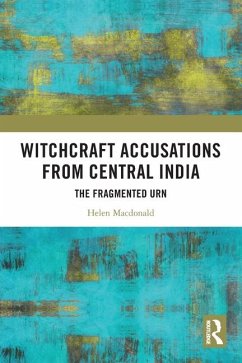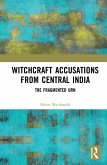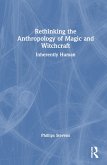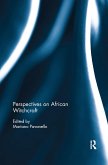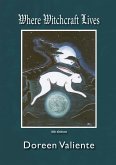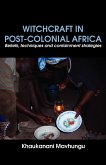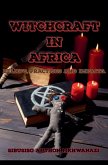This book unravels the institutions surrounding witchcraft in the central Indian state of Chhattisgarh through theoretical and empirical research on witchcraft, violence and modernity in contemporary times. The author pieces together 'fragments' of stories gathered utilising ethnographic methods to examine the meanings associated with witches and witchcraft, and how they connect with social relations, gender, notions of agency, law, media and the state. The volume uses the metaphor of the shattered urn to tell the story of the accusations, punishment, rescue and the aftermath of the events of the trial of women accused of being witches. It situates the ¿onh¿ or witch as a key elaborating symbol that orders behaviour to determine who the socially included and excluded are in communities. Through the personal interviews and other ethnographic methods conducted over the course of many years, the author delves into the stories and practices related to witchcraft, its relations with modernity, and the relationship between violence and ideological norms in society. Insightful and detailed, this book will be of great interest to academics and researchers of anthropology, development studies, sociology, history, violence, gender studies, tribal studies and psychology. It will also be useful for readers in both historic and contemporary witchcraft practices as well as policy makers.¿
Hinweis: Dieser Artikel kann nur an eine deutsche Lieferadresse ausgeliefert werden.
Hinweis: Dieser Artikel kann nur an eine deutsche Lieferadresse ausgeliefert werden.

